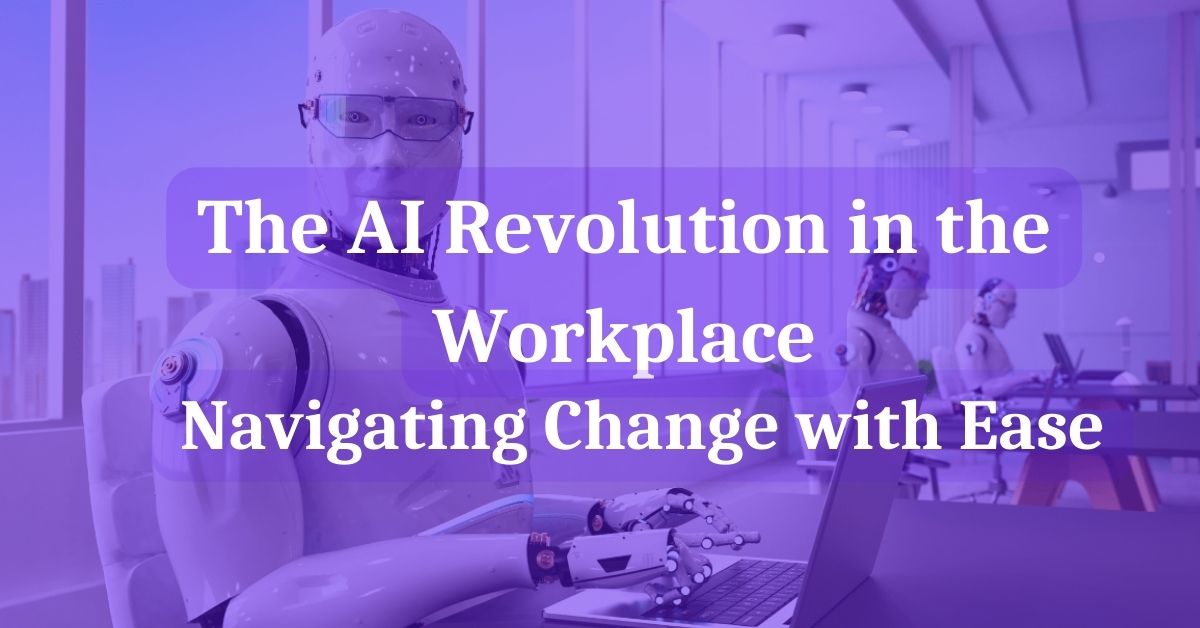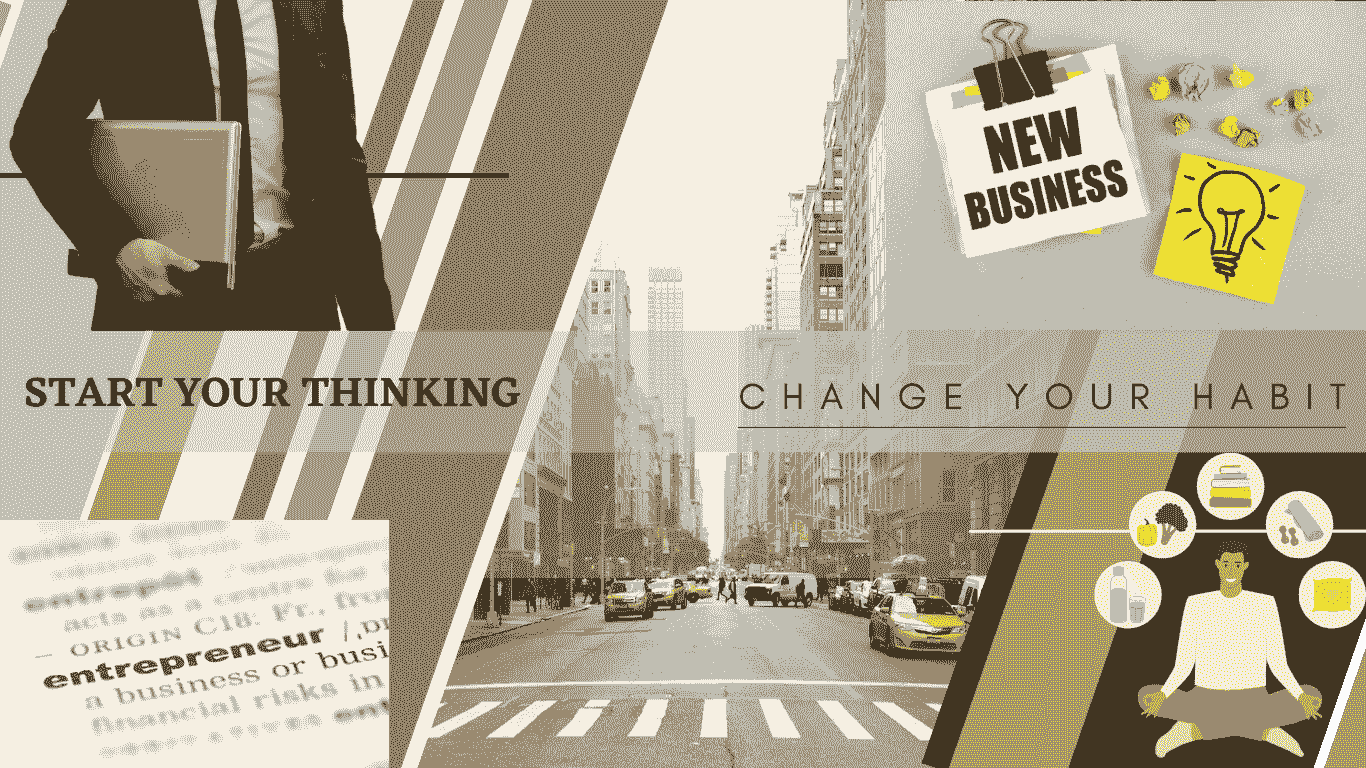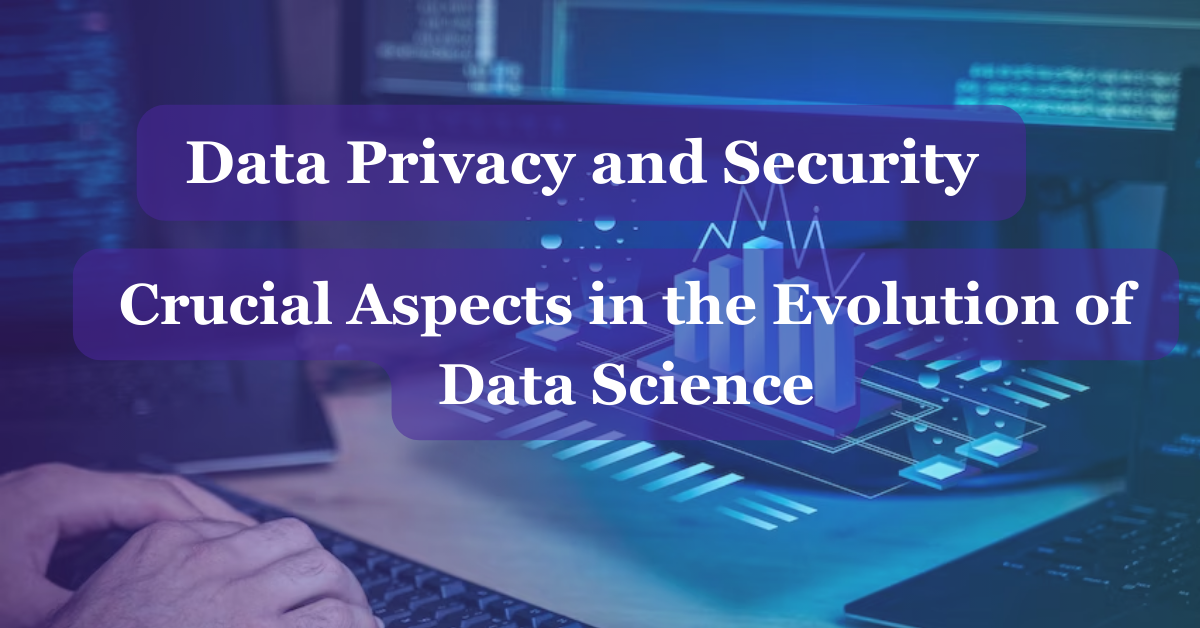Introduction
In today's dynamic business landscape, Artificial Intelligence (AI) is reshaping the way we work. This article explores the diverse aspects of AI in the workplace, shedding light on its applications, corporate significance, industry impact, and its role in shaping the future of work.
Understanding AI in Companies
Artificial Intelligence (AI) has become a cornerstone in reshaping the way companies operate and make decisions. Here's a breakdown of key points to comprehend the role of AI within organizations:
Integration into Operations:
· Companies are increasingly incorporating AI technologies like machine learning and data analytics into their daily operations.
· This integration aims to streamline processes, reduce manual workload, and enhance overall efficiency.
Automation of Routine Tasks:
· AI is deployed to automate repetitive and mundane tasks, allowing employees to focus on more complex and creative aspects of their work.
· This automation contributes to increased productivity and resource optimization.
Optimizing Supply Chains:
· AI plays a vital role in optimizing supply chain management by predicting demand, improving inventory management, and enhancing logistical efficiency.
· This leads to cost savings and a more responsive and adaptable supply chain.
Strategic Data Analysis:
· Companies leverage AI for in-depth data analysis, enabling them to extract meaningful insights from large datasets.
· Strategic decision-making benefits from data-driven approaches, fostering a competitive edge in the market.
Enhanced Customer Interactions:
· AI applications, such as chatbots, are employed to enhance customer interactions by providing immediate and personalized support.
· This not only improves customer satisfaction but also frees up human resources for more complex tasks.
Employee Upskilling Initiatives:
· The integration of AI necessitates initiatives for employee upskilling to ensure that the workforce is equipped to work alongside AI technologies.
· Training programs focus on developing skills that complement and enhance AI-driven processes.
Ethical Considerations:
· As companies harness the power of AI, ethical considerations become crucial, particularly regarding the use of sensitive data and the potential impact on employment.
· Establishing ethical guidelines ensures responsible AI implementation.
Strategic Alignment with Business Goals:
· Successful integration of AI requires aligning technological strategies with broader business goals.
· Companies need to ensure that AI initiatives contribute directly to achieving organizational objectives.
Innovation and Competitiveness:
· Understanding AI is key for companies aiming to foster innovation and maintain competitiveness in a rapidly evolving business landscape.
· Proactive adoption of AI technologies positions companies as industry leaders.
Navigating the Evolving Landscape:
· A comprehensive understanding of AI enables companies to navigate the dynamic landscape, adapting strategies to capitalize on emerging opportunities.
· Ongoing awareness and adaptation to technological advancements are essential for sustained success.
AI's integration into companies is a transformative journey that requires a holistic understanding of its applications, implications, and strategic alignment with organizational goals. Embracing AI as a tool for innovation and efficiency ensures that companies remain agile and competitive in the ever-changing business environment.
Applications of AI in the Workplace
· Automated Task Execution: AI is deployed to automate repetitive and routine tasks, reducing manual effort and allowing employees to focus on more complex responsibilities.
· Data Analysis and Insights: AI tools analyze large datasets to extract valuable insights, aiding in strategic decision-making processes and providing a data-driven approach to business operations.
· Chabot’s for Customer Support: AI-powered chatbots are employed for immediate and personalized customer support, handling routine queries and enhancing overall customer service.
· Predictive Analytics in HR: AI applications predict workforce trends, helping in talent acquisition, employee retention, and workforce planning.
· Optimizing Workforce Productivity: AI assists in optimizing workforce productivity by analyzing work patterns, identifying bottlenecks, and suggesting improvements in workflows.
· Personalized Learning and Development: AI is used to tailor employee training programs based on individual learning styles, ensuring a more personalized and effective approach to professional development.
· Cybersecurity Threat Detection: AI algorithms analyze patterns to detect and prevent potential cybersecurity threats, providing enhanced protection for sensitive data.
· Automated Recruitment Processes: AI streamlines recruitment by automating resume screening, identifying suitable candidates, and even conducting initial interviews.
· Workflow Automation: AI is integrated into workflow systems to automate processes, improving efficiency and reducing the likelihood of errors in routine tasks.
· Virtual Collaboration Platforms: AI-driven collaboration tools facilitate communication and teamwork among remote or global teams, enhancing overall collaboration and project management.
· Employee Well-being Monitoring: AI technologies monitor employee well-being by analyzing factors such as stress levels, workload, and overall work satisfaction.
· Sales and Marketing Optimization: AI is utilized in sales and marketing for lead scoring, customer segmentation, and personalized marketing strategies, leading to more effective and targeted campaigns.
· Language Processing for Data Entry: AI's natural language processing capabilities are harnessed for data entry tasks, enabling efficient processing and organization of textual information.
· AI in Project Management: Project management tools use AI to optimize project timelines, resource allocation, and risk assessment, contributing to more successful project outcomes.
· Continuous Monitoring and Improvement: AI systems continuously monitor processes, gather feedback, and suggest improvements, ensuring a dynamic and adaptive approach to organizational workflows.
Corporate Role of AI
· Strategic Decision-Making: AI provides data-driven insights that aid corporate leaders in making informed and strategic decisions, contributing to the overall success of the organization.
· Operational Efficiency: AI streamlines operational processes, automating routine tasks and optimizing workflows to improve overall efficiency and resource utilization.
· Supply Chain Management: AI is utilized in supply chain optimization, forecasting demand, managing inventory, and enhancing logistics, leading to cost savings and improved supply chain responsiveness.
· Customer Relationship Management (CRM): AI-powered CRM systems analyze customer data to personalize interactions, improve customer satisfaction, and drive customer retention strategies.
· Enhanced Marketing Strategies: AI assists in marketing efforts by analysing consumer behaviour, providing insights for targeted campaigns, and optimizing advertising strategies for better reach and engagement.
· Financial Analysis and Risk Assessment: AI applications analyze financial data, helping in risk assessment, fraud detection, and providing accurate forecasts for financial planning.
· Talent Acquisition and HR Management: AI tools support HR functions by automating recruitment processes, predicting workforce trends, and optimizing talent acquisition and retention strategies.
· Innovation and Product Development: AI contributes to innovation by facilitating research and development processes, optimizing product design, and predicting market trends to stay ahead of competitors.
· Cost Savings through Automation: By automating routine tasks, AI helps corporations reduce operational costs, increase productivity, and allocate resources more efficiently.
· Employee Productivity and Collaboration: AI-driven tools enhance employee productivity through task automation, collaboration platforms, and personalized learning, contributing to a more engaged and efficient workforce.
· Risk Management and Compliance: AI assists in identifying and mitigating risks through real-time monitoring, ensuring compliance with regulations and industry standards.
· Data Security and Cybersecurity: AI plays a crucial role in detecting and preventing cybersecurity threats, safeguarding sensitive corporate data and ensuring the integrity of digital infrastructure.
· Strategic Planning and Forecasting: AI provides valuable insights for strategic planning, forecasting market trends, and helping corporations stay adaptive in dynamic business environments.
· Continuous Improvement Initiatives: AI supports continuous improvement by analyzing processes, identifying bottlenecks, and suggesting optimizations to enhance corporate performance over time.
· Ethical and Responsible AI Implementation: Corporations must adopt ethical practices in AI implementation, considering the social and ethical implications to ensure responsible and sustainable use of technology.
AI Impact on Different Industries: Revolutionizing the Future
· Healthcare
Enhanced Diagnostics and Treatment: AI is revolutionizing healthcare by enhancing diagnostic accuracy and treatment precision. Machine learning algorithms analyze vast datasets to identify patterns, assisting healthcare professionals in early disease detection and personalized treatment plans.
AI in Drug Discovery: The pharmaceutical industry benefits from AI-driven drug discovery, accelerating the identification of potential compounds and significantly reducing research and development timelines.
Streamlining Administrative Tasks: Administrative tasks, often time-consuming in healthcare, are streamlined through AI. From appointment scheduling to billing processes, AI optimizes administrative workflows, allowing healthcare providers to focus more on patient care.
· Finance
AI in Fraud Detection: Financial institutions leverage AI for fraud detection, identifying irregular patterns and preventing unauthorized transactions, ensuring the security of financial transactions.
Algorithmic Trading: AI algorithms analyze market trends in real-time, enabling algorithmic trading strategies that respond swiftly to market changes, optimizing investment portfolios.
Personalized Financial Planning: AI-driven financial tools provide personalized advice and planning, catering to individual financial goals and enhancing the overall financial well-being of users.
· Manufacturing
Smart Factories: AI transforms manufacturing with smart factories, where machines communicate and optimize production processes, reducing downtime and improving overall efficiency.
Quality Control and Predictive Maintenance: In manufacturing, AI ensures quality control by detecting defects in real-time. Predictive maintenance algorithms minimize downtime by predicting when equipment needs repair or maintenance.
Supply Chain Optimization: AI enhances supply chain management, optimizing inventory levels, predicting demand fluctuations, and ensuring a seamless flow of goods from production to delivery.
· Education
AI-powered Learning Platforms: Education embraces AI with personalized learning platforms that adapt to individual student needs, fostering a more effective and engaging learning experience.
Customized Learning Paths: AI analyzes students' progress and tailors learning paths, addressing specific strengths and weaknesses, promoting a personalized and effective education journey.
Automating Administrative Processes: Administrative tasks in education, such as grading and scheduling, are automated through AI, allowing educators to focus on teaching and mentorship.
· Agriculture
Precision Farming: AI in agriculture brings precision farming, optimizing crop yield through real-time data analysis, monitoring soil conditions, and recommending precise interventions.
Crop Monitoring: Drones and AI-powered sensors monitor crop health, identifying potential issues and enabling timely intervention, ensuring a healthy and abundant harvest.
Automated Harvesting: AI-driven robotic systems revolutionize harvesting processes, increasing efficiency, and reducing labor-intensive tasks in agriculture.
· Entertainment
Content Recommendation: Entertainment platforms use AI algorithms to analyze user preferences, providing personalized content recommendations, enhancing user engagement.
Virtual Reality and Augmented Reality: AI enhances immersive experiences in entertainment through virtual and augmented reality, bringing a new dimension to storytelling and gaming.
AI in Content Creation: Content creation in the entertainment industry benefits from AI-generated insights, optimizing storytelling, and creating compelling narratives.
· Retail
Personalized Shopping Experience: Retail experiences are personalized with AI, analyzing customer behavior to offer tailored recommendations and creating a more enjoyable shopping journey.
Inventory Management: AI optimizes inventory management by predicting demand patterns, reducing stockouts, and minimizing excess inventory, improving overall efficiency.
Chatbot Customer Service: AI-powered chatbots in retail provide instant customer service, answering queries, assisting with purchases, and enhancing the overall shopping experience.
· Transportation
Autonomous Vehicles: The transportation industry witnesses a transformation with AI-driven autonomous vehicles, promising safer and more efficient transportation solutions.
Traffic Optimization: AI algorithms optimize traffic flow, reducing congestion, and improving commute times, contributing to more sustainable and organized urban mobility.
Predictive Maintenance for Vehicles: AI predicts maintenance needs for vehicles, minimizing unexpected breakdowns and maximizing the lifespan of transportation fleets.
Challenges in Implementing AI
· Data Quality and Availability: One major challenge in implementing AI is ensuring the availability and quality of data. AI systems heavily rely on data for training and decision-making, and inadequate or inconsistent data can lead to biased outcomes and hinder the effectiveness of AI applications.
· Lack of Skilled Talent: The shortage of skilled professionals well-versed in AI technologies poses a significant challenge. Building and maintaining AI systems require expertise in data science, machine learning, and programming, making it crucial for businesses to address the talent gap to ensure successful AI implementation.
· Integration with Existing Systems: Integrating AI into existing systems is often complex. Legacy systems may not seamlessly align with AI technologies, requiring careful planning and strategic implementation to ensure a smooth integration process without disrupting ongoing operations.
· Ethical and Regulatory Concerns: As AI becomes more pervasive, ethical considerations and regulatory compliance become paramount. Businesses must navigate the ethical implications of AI decision-making and comply with evolving regulations to ensure responsible and lawful AI implementation.
· Cost of Implementation and Maintenance: The financial aspect is a notable challenge in AI adoption. Implementing AI systems involves significant upfront costs, and ongoing maintenance and updates further contribute to the financial burden. Businesses need to carefully assess the return on investment while considering the long-term sustainability of AI solutions.
Conclusion
In conclusion, the integration of AI in the workplace is inevitable and offers immense potential for positive change. Embracing AI, understanding its applications, and preparing for its continued evolution are critical steps for professionals and businesses alike. By navigating the challenges and capitalizing on the benefits, we can shape a future where humans and AI collaborate synergistically.
FAQs
Is AI going to replace human jobs entirely?
AI may automate tasks, but it won't replace human creativity and emotional intelligence. New job opportunities will emerge in AI-related fields.
How can individuals prepare for the AI-driven workplace?
Continuous learning, acquiring digital skills, and staying updated on industry trends are essential for individuals preparing for the AI revolution.
What industries are most impacted by AI?
Healthcare, finance, manufacturing, and technology are among the most impacted by AI, but its influence is pervasive across various sectors.
Are there ethical concerns associated with AI in the workplace?
Yes, ethical considerations, such as data privacy and potential bias in AI algorithms, are important concerns that companies must address responsibly.
How can companies ensure a positive AI environment for employees?
Fostering transparent communication, providing training opportunities, and actively involving employees in the AI integration process contribute to a positive AI environment.






